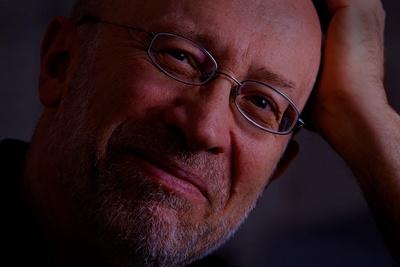Something rotten in the state of public life

Historian Tony Judt's scathing attack on the debased condition of modern society and his powerful challenge to create a better world makes this book one that none of us can afford to ignore. Review by Edward O’Hare.
In days to come people will look back and wonder how, after pulling itself back from the brink of oblivion after world wars, revolutions and recessions, civilization could have been allowed to lapse into the state that it has at the close of the first decade of the 21st century. The world we live in is now marked by greater greed, inequality, unemployment and unhappiness than at any point in its history. The entire human project, once fired by the belief that mankind could accomplish anything, seems to have shut down. As a race we don’t know who we are or where we are going anymore. What the future holds is no longer a question we contemplate with awestruck excitement but with fear.
The historian Tony Judt has written extensively about how the modern world came into being. Now, in Ill Fares the Land, he gives us a sincere, eloquent and uncompromising analysis of how it has fallen apart and how, in his view, it can be put back together. “For thirty years,” he writes, “we have made a virtue out of the pursuit of material self interest: indeed, this very pursuit now constitutes whatever remains of our sense of collective purpose.” He argues that “We cannot go on living like this. The little crash of 2008 was a reminder that unregulated capitalism is its own worst enemy: sooner or later it must fall prey to its own excesses and turn again to the state for rescue. But if we do no more than pick up the pieces and carry on as before, we can look forward to greater upheavals in the years to come.”
This obsession with wealth has blinded us to questions of ethics and morality, destroyed all sense of community, robbed us of the ability to see what is truly valuable in life and left the younger generations alienated and cynical. Ours is what Judt calls ‘an age of insecurity’ where an ever greater number of gated communities house emotionally gated individuals afraid of human contact.
How has this situation come about?
Judt lays much of the blame at the feet of governments who have abandoned the working people whose support originally made them into political forces. He also accuses his fellow intellectuals on the Left of deserting their posts as essential critics of their societies and pursuing abstract questions about individual human rights to little or no avail.
Ill Fares the Land reads like a hymn to the brilliant 20th century economist John Maynard Keynes. Along with Keynes, Judt believes that a capitalist democracy, while never perfect, can become a great society provided measures are taken to “constrain the freedom of the market in the name of public interest.” When the state channels taxes back into vast projects to benefit the collective good, as was done most far-reachingingly in the US in the days of the New Deal and in Europe in the aftermath of World War 2, tremendous progress can be made. When this does not happen, and the markets are allowed unlimited freedom to exploit, we are left in the condition of ‘public squalor’ that characterizes so much of the western world today.
Judt is unreserved in his castigation of the Reagan, Clinton and Bush administrations, the Thatcher, Blair and Brown governments, and attacks numerous other international authority figures who allowed big business to wreck the lives of the citizens they represent. What Judt believes has proven most damaging is the consensus between political Left and Right, Liberals and Conservatives that economic growth and globalization are the only goals that should be pursued. This has led to the complete stagnation of public life and to the enormous widening of the gulf between rich and poor. Here is Judt’s barbed dismissal of Ireland’s recent fairy story of economic success:
“Of Ireland there is little to say. The so-called ‘economic miracle’ of the ‘plucky little Celtic tiger’ consisted of an unregulated, low-tax regime which predictably attracted inward investment and hot money. The inevitable shortfall in public income was compensated by subsidies from the much-maligned European Union, funded for the most part by the supposedly inept ’old European’ economies of Germany, France and the Netherlands. When Wall Street’s party crashed, the Irish bubble burst along with it. It will not soon reflate.”
While its prognosis is bleak Ill Fares the Land does explain how we can make a better future. Judt argues that “It is the gap between the inherently ethical nature of public decision-making and the utilitarian quality of contemporary political debate that accounts for the lack of trust felt towards politics and politicians.” We have been encouraged to think solely in terms of efficiency, profitability and forget about whether state decisions are right, just or promote the good. Therefore, he suggests we take a lesson from the ancient Greeks and develop a new moral narrative, one which will consider the human implications of what we do and which “ascribes purpose to our actions in a way that transcends them.”
Judt holds that we cannot go on leaving the responsibility for the world to a handful of politicians, bankers and corporate executives. We need to fundamentally reconsider what kind of world we want and what kind of life offers real fulfilment. If we don’t, the world our children shall inherit will be an even greater moral wasteland than this one. For its fearless attempt to forge a way back for civilization from the rotten state it has fallen into Ill Fares the Land should be read by anyone concerned about the future of their society.
Ill Fares the Land by Tony Judt
Allen Lane
237 PP
EURO 24
